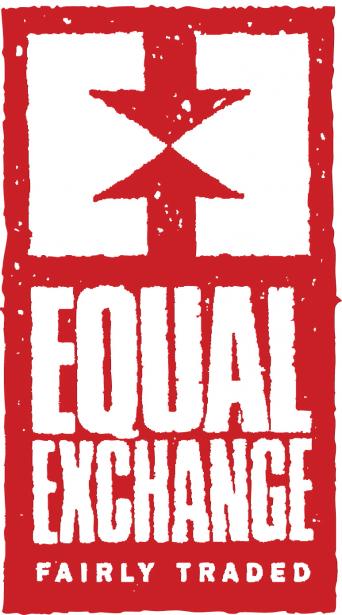
Equal Exchange Summit Reports on the Worldwide Alternative Trade

Last month we joined over 200 fellow attendees — including business owners, clergy, coffee roasters, and established and startup grocery cooperatives, among others —at the Equal Exchange Summit in Norton, MA. During our time there, we learned where your food dollars spent on Equal Exchange products are going, and about the exciting collaborations happening among the various large and small players in alternative trade.
In Mount Airy alone, we’ve been purchasing up to 50 cases of Equal Exchange bananas per week for over a decade, so many people at the forum were acquainted with Weavers Way. Rob Everts, co-founder and co-director of Equal Exchange, along with Co-Director Rink Dickinson, kicked off the summit by challenging attendees to think about collaboration and change throughout the programs.
Keynote speaker Santiago Paz López, export manager for Peru’s Cooperative Agaria Norandino, elaborated on Everts’ remarks by talking about the fact that 20% or more of the global population lives in poverty.
“How do we stop commercial exchanges from being unjust?” he asked the crowd, explaining how prices at supermarkets for products like chocolate stay the same or increase, while farmers are continually forced to accept lower wholesale prices. His work is based in Peru, the third most affected country by climate change.
López explained that paying the producers a fair price for their products — along with investing in infrastructure to uplift the producers’ communities —Is having concrete results in Peru and around the world. The Equal Exchange–branded fair trade products partner with 640 organizations across three continents, and sales and programming impact 1.5 million workers and producers, with indirect benefits to seven million people.
He then unpacked what the “fair trade premium”— that higher cost for an Equal Exchange organic banana versus a national brand conventional one, for example — means. The major difference between Equal Exchange and other brands, both fair trade and not, is that the producers get a higher price.
López’s organization covers six regions in Northern Peru, and binds together its 7,000 producer-members who grow coffee, sugar cane, and chocolate. He wrapped up his spirited introduction with threats to authentic fair trade, including the global context of a trade war “that is as bad as fighting a traditional war.” He encouraged Equal Exchange to differentiate itself from all other competitors.
Workshops and sessions ranged widely over the course of two days, including solidarity campaigns from Oxfam’s “Behind the Barcodes,” “Food Cooperatives: Transforming the Food System,” and “Demystifying Cooperative Models Within Our Supply Chains: Producer and Worker-Owned Co-ops,” to name a few.
There was certainly no shortage of informative and compelling workshops at the Summit. Connections were made, information was shared, and delicious food was generously provided. And we certainly can’t forget to mention Gearson Band from Cape Verde, who rocked the house the Friday night of the Summit.
